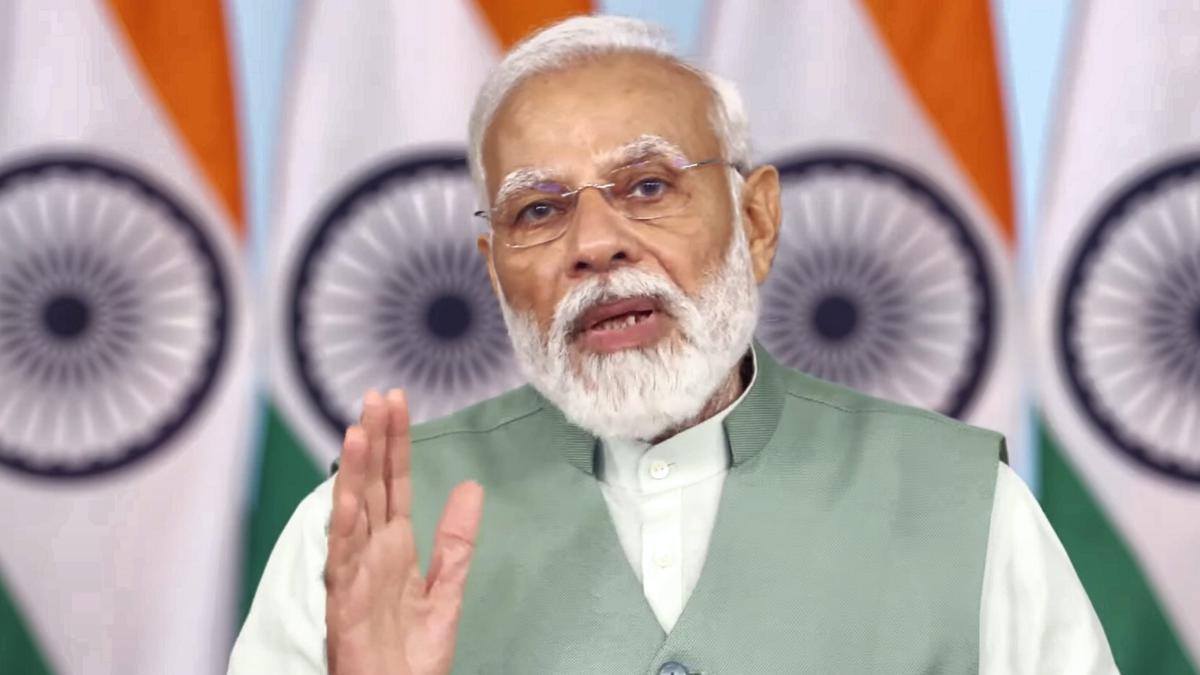Geopolitical tensions and COVID-19 impacted development in Global South: PM Modi
Mr. Jaishankar described the SDGs as “landmark” but pointed out that the international community has not pursued them in a well-coordinated manner saying, “Cherry picking” not useful for SDGs.
Amid the ongoing Russia-Ukraine war, Indian Prime Minister Narendra Modi on Monday said "geo-political tensions" have delivered another blow to the Global South – the countries which were already severely impacted by the COVID-19 pandemic.
Virtually addressing the G20 Development Ministers’ meeting, Modi said development is a core issue for the Global South and the "food, fuel, and fertilizer crises because of geo-political tensions have delivered another blow."
Global South comprises countries in Latin America, Africa, and much of Asia.
India, the current chair of the G20 Presidency, is holding many events under the umbrella and will hold a summit of the bloc's leaders in September.
The G20 is a strategic multilateral platform that connects the world's major developed and emerging economies, which account for more than 80% of global GDP, 75% of international trade, and 60% of the world population.
"In such circumstances, the decisions you make carry great significance for humanity as a whole. I strongly believe that it is our collective responsibility not to let the Sustainable Development Goals( SDGs) fall behind," Modi told the meeting being held in northern Uttar Pradesh state until Tuesday.
"We must ensure that no one is left behind. It is imperative for this group to send a strong message to the world that we have an action plan to achieve this."
The long-drawn-out Russia-Ukraine war has badly impacted the energy, food, and fertilizer markets around the world.
The Türkiye- and UN-brokered Black Sea grain corridor deal last year has allowed transportation of more than 30.5 million tons of grains since Aug. 1, 2022.
According to the UN Office for the Coordination of Humanitarian Affairs (OCHA), more than 15.5 million tons of corn, 8.4 million tons of wheat, 1.7 million tons of sunflower pulp, 1.5 million tons of sunflower oil, 1.3 million tons of barley, 0.98 million tons of rapeseed, 0.76 million tons of soybean, 0.22 million tons of sunflower seed, 0.11 million tons of canola and 0.13 million tons of other grain products have been transported so far.
Türkiye, the UN, Russia, and Ukraine signed the initial agreement in Istanbul last July to resume grain exports from three Ukrainian Black Sea ports, which were halted after the Russia-Ukraine war began in February 2022.
The deal was set to expire on May 18 but was extended for two months.



0 Comments